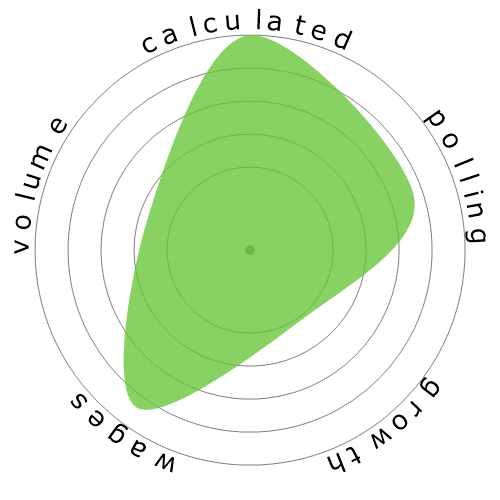General Internal Medicine Physicians
Where Would You Like to Go Next?
Or, Explore This Profession in Greater Detail...


What does this snowflake show?
What's this?
We rate jobs using four factors. These are:
- Chance of being automated
- Job growth
- Wages
- Volume of available positions
These are some key things to think about when job hunting.
People also viewed
Calculated automation risk
Minimal Risk (0-20%): Occupations in this category have a low probability of being automated, as they typically demand complex problem-solving, creativity, strong interpersonal skills, and a high degree of manual dexterity. These jobs often involve intricate hand movements and precise coordination, making it difficult for machines to replicate the required tasks.
More information on what this score is, and how it is calculated is available here.
User poll
Our visitors have voted there's a low chance this occupation will be automated. This assessment is further supported by the calculated automation risk level, which estimates 0.0% chance of automation.
What do you think the risk of automation is?
What is the likelihood that General Internal Medicine Physicians will be replaced by robots or artificial intelligence within the next 20 years?
Sentiment
The following graph is shown where there are enough votes to produce meaningful data. It displays user poll results over time, providing a clear indication of sentiment trends.
Sentiment over time (yearly)
Growth
The number of 'General Internal Medicine Physicians' job openings is expected to rise 3.4% by 2033
Total employment, and estimated job openings
Updated projections are due 09-2025.
Wages
In 2023, the median annual wage for 'General Internal Medicine Physicians' was $223,310, or $107 per hour
'General Internal Medicine Physicians' were paid 364.6% higher than the national median wage, which stood at $48,060
Wages over time
Volume
As of 2023 there were 67,210 people employed as 'General Internal Medicine Physicians' within the United States.
This represents around < 0.001% of the employed workforce across the country
Put another way, around 1 in 2 thousand people are employed as 'General Internal Medicine Physicians'.
Job description
Diagnose and provide nonsurgical treatment for a wide range of diseases and injuries of internal organ systems. Provide care mainly for adults and adolescents, and are based primarily in an outpatient care setting.
SOC Code: 29-1216.00
Comments (9)
AI replacing a huge number of doctors: High
AI automating jobs of many doctors : HIGH
So what do doctors do that AI can do ?
1. type up clinic letters by dictation or typing themselves: EASILY AUTOMATED
2. prescribing standard medications for a disease ONCE DIAGNOSED: easy to automate
3. referring to other specialities / involving other specialties if test results abnormal: EASILY AUTOMATED
4. have frequent tea coffee breaks and date lovely nurses: difficult to automate.......
5. DIAGNOSE ILLNESS......if a monkey can put all the data into the computer by talking to a patient, then the AI will outperform the doctor and suggest the TOP THREE BEST POSSIBILE/ LIKELY diagnosis... IT CAN PRINT OUT blood requests and scans for all those diseases instantly and forward it to all departments. ... and once the data comes back the final diagnosis can be confirmed....
BUT TAKING ONE LOOK AT A PATIENT AND SAYING YOU ARE OK, you can go home, no medications needed....NO WAY YOU CAN AUTOMATE THAT.....everyone and everything that walks will be taken blood out of and scanned to death ... life will become slowed down by all the testing.. but hey, the tests will be faster right? we will have more CT scans and MRIs or even better scanners for everyone at their own home right? well if so, yes, doctors will have to be renamed to HEALTH AI MANAGERS
We literally have so many AI databases that can help identify illnesses from symptoms and biostatistics. It's a project that's being worked on by many tech companies. Even doctors are already using this.
There exist remote surgeon robots that allow surgeons to perform surgery without being physically present. The only reason there's a human there is because we are too afraid of AI decision-making for liability issues.
There's no technical barrier to a fully automated single-purpose AI replacing specialist doctors slowly.
Reply to comment